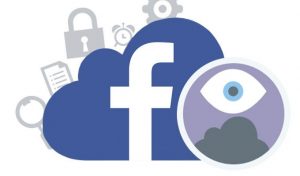Facebook is reportedly ready to release its own video chat device next week.
The device will be called ‘Portal’ and will be the company’s first venture into consumer technology after Oculus. Portal is part of the company’s plan to enter the smart-home industry and be more involved in its user’s lives.
Sources revealed that the device is going to be released in two screen sizes, with a reported price of $400 and $300 respectively for the large and small screen versions.
Data Privacy – Certainly not Facebook’s forte
Earlier this year, Facebook CEO Mark Zuckerberg came under fire from the media, government, and millions of its users when it was revealed that the company had been using private information, and funnelling it out to businesses in different parts of the world – businesses, which subsequently used this information to tip the scales of political parties in their respective governments.

According to a report by Bloomberg, Facebook was set to unveil the device back in May but had to cancel due to the pressure it was facing from the public, media and the US government amid the Cambridge Analytica scandal where the company was accused of using consumer data for political purposes.
Will an intrusive, camera-following device regain customer trust?
Facebook plans to become more involved in consumer’s daily lives by venturing into the smart-devices category, apparently in direct competition with Amazon, which unveiled its own smart speakers for the connected home. The device reportedly has the capability to integrate with Amazon’s voice assistant called Alexa, and also let users watch videos, play music, receive news, and even see cooking recipes.

Portal is also likely to come with a shutter for its wide-angle camera, called the ‘privacy shutter’. Using Artificial Intelligence (AI), the device will be able to recognise users and follow them wherever they may be in the room.
Lost users equal lost revenue
According to eMarketer, Facebook lost about 2.8 million US users under the age of 25 last year. 2018 doesn’t look much better for the social media giant.
Research firms expect that Facebook will lose about 2.1 million users in the US under the age of 25 this year as well. This is just in the United States.
A look at the company’s historical stock prices shows it has seen a steady overall decline since the 3rd quarter of 2017, where the stock opened at $171.4 on 1 October 2017, and has declined to $163.6 today (September 25, 2018).

This goes to show that even after Zuckerberg’s (over)confidence based on his replies to the media after the Cambridge Analytica debacle where he said that the scandal was a great opportunity for Facebook to catapult to greater heights – the company is not doing well at the moment.
With all the rage directed at the company, with all the scrutiny towards its data privacy policies – how does the company expect to gain customer trust by launching a device that can potentially spy on users in their homes?
Perhaps a more secure, a more transparent software, or add-on to Facebook might have been a better option for the company, whose CEO had to face the wrath of an angry US Congress committee earlier this year?
Was this the best way forward for a company which has lost public trust amid recent data privacy scandals?
Only Zuckerberg knows the answer to this.




